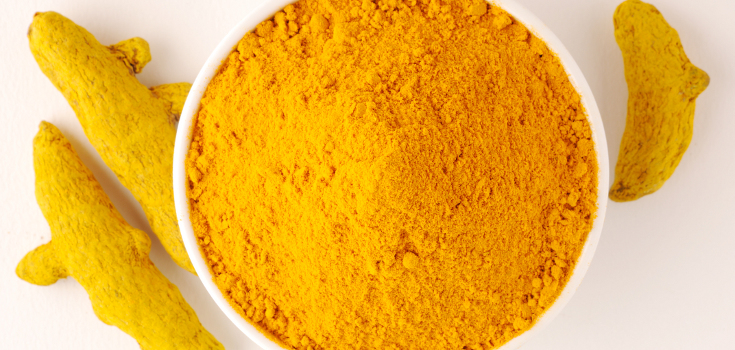Studies Find This Spice Effectively Halts Asthma, Bronchitis

An extract of the spice
The goal of the research was to determine the efficacy and safety of curcumin as an ‘add-on’ therapy for bronchial asthma. The researchers recruited 77 participants for their study, and randomized them into two groups.
- Group A was receiving typical medicinal drugs for the treatment of bronchial asthma.
- Group B was receiving typical medicinal drugs for the treatment of bronchial asthma, to which were added 500 mg of curcumin in capsule form twice a day.
Parameters used to evaluate the findings of the clinical assessments were difficult or labored breathing, wheezing, cough, chest tightness and nocturnal symptoms, bronchodilator results, and improvement in blood.
Each of the patients was followed up every tenth day for a period of one month. At each visit these clinical parameters were assessed.
Results showed that curcumin capsules helped improve airway obstruction. Additionally, there was significant improvement in blood parameters, and the absence of any clinically significant adverse effects indicated that curcumin can be used safely. It was also noted that there was no clinical efficacy documented.
No clinical efficacy ? According to the researchers:
“This may be because the number of the study subjects were only 60, who completed the study, which may be insufficient numbers to provide a statistically significant result in the patient centered outcome measures (like asthma symptoms). Besides the dose and duration of curcumin administered may not be sufficient enough to produce clinically beneficial effect. Moreover the severity of clinical symptoms were assessed by an individual (as absent, mild, moderate and severe with scores of 0, 1, 2 and 3) thus were not much reliable.
A further study with large subjects and modified dose is now required to investigate the effects of curcumin on symptomatic control. In addition, the study only explored the use of curcumin as an add-on therapy, and no information can be inferred on the use of this agent as monotherapy or as a steroidsparing agent. These areas need further exploration.”
Read: How to Optimize Turmeric Absorption for Super-Boosted Benefits
Research into the healing powers
In research published in October, scientists noted that curcumin attenuates allergic airway inflammation in mice through inhibition of specific pathways. They aimed to investigate the anti-inflammatory effect of curcumin on acute allergic asthma and its underlying mechanisms in mice.
Bronchial fluid and lung tissue were analyzed for airway inflammation and the expression of specific receptors. The results suggested that a specific group of receptors play an important role in the development of allergic airway inflammation, and the inhibition of the signaling from these receptors by curcumin can prevent the development and deterioration of this allergic airway inflammation.
In another study published this year, the use of inter-nasal curcumin prevented accumulation of inflammatory cells in the airways, structural alterations, and remodeling associated with chronic asthma, such as smooth muscle thickening, sloughing off of the epithelial lining, and mucus secretion in mice with induced asthma.
There is More to Curcumin than Asthma
Curcumin is a potent anti-inflammatory that acts as effectively as drugs such as hydrocortisone, phenylbutazone, and Motrin. It is helpful with inflammatory bowel diseases, Crohn’s disease, ulcerative colitis, rheumatoid arthritis, cystic fibrosis, cancer, and Alzheimer’s disease. Recent research also shows it as positive for pancreatic and liver protection.
One study published earlier this year has demonstrated that curcumin may be nearly as powerful as Prozac for relieving symptoms of depression. Further studies are needed to confirm this study’s findings, but the initial reports are positive.
When combined with cruciferous vegetables, (broccoli, cabbage, kale)
It seems that we’ve stumbled upon a golden treasure.
